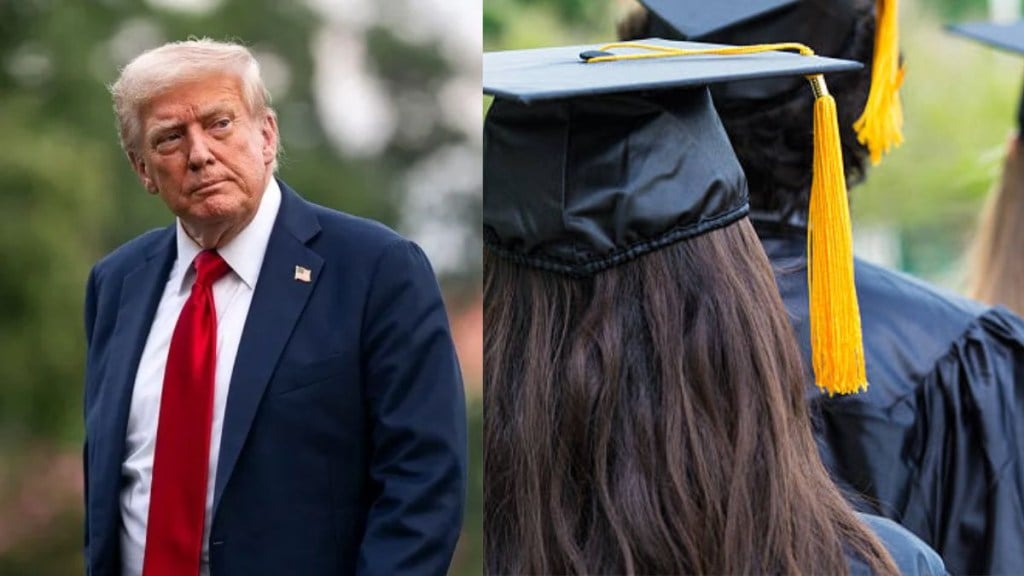Recent college graduates in the United States are facing one of the toughest job markets in over a decade, struggling to find stable footing after graduation. According to the latest data from the Labour Department, the national unemployment rate stands at approximately 4%, while the jobless rate for recent college graduates reached 6.6% over the 12 months ending in May. While still slightly lower than the 6.9% rate for all young adults aged 22 to 27,this trend is concerning. One of the key reasons behind this transition is due to a new entrant, Artificial Intelligence.
How AI is disrupting the entry job market in the US?
A growing number of CEOs are becoming reluctant to hire recent college graduates, as they believe artificial intelligence can handle many of the tasks which are usually assigned to entry-level workers. In a recent report by The Wall Street Journal, Bill Balderaz, CEO of the Columbus-based consulting firm Futurety, stated that the once-assumed promise of landing a stable job after graduation is no longer a given. “I don’t think that is an absolute truth today anymore,” he said. For many years, fresh talent would accept lower pay in exchange for on-the-job training and experience. In return, companies would help shape the future workforce. However, the rise of AI is threatening to dismantle that model entirely.
According to the recent labour data, the share of new graduates securing jobs that require a bachelor’s degree has come down since 2020. This downturn spans across disciplines, from the arts to engineering and math. In fact, unemployment among recent grads is now climbing faster than for those with only a high school diploma or an associate degree.
‘Fresh graduates will have to learn quicker’
Despite the slowdown in graduate hiring, sectors like information technology, finance, insurance, and professional services continue to grow. Burning Glass president Matt Sigelman, told WSJ, “This is a tectonic shift in the way employers are hiring,” he explained. “Companies are cutting back on entry-level roles and focusing more on hiring experienced professionals.” Business leaders are now openly acknowledging AI’s potential to significantly reduce headcounts with the use of ChatGPT. Not only are there fewer job openings tailored for entry-level applicants, but they are also competing with laid-off junior professionals, further narrowing their already limited opportunities.
At Primary Venture Partners, a New York-based venture capital firm, partner Rebecca Price is asking CEOs of the firm’s 100 portfolio companies to reconsider every new hire, especially whether the role could be automated. The shift is not about the complete disappearance of entry-level jobs, she explained, but a growing mismatch between what companies need and what recent graduates are prepared to offer. In the age of AI, the expectations for junior talent have evolved rapidly. Where first-time engineers once needed only basic coding skills, today’s roles demand far more, such as the ability to detect system vulnerabilities and critically evaluate the reliability of AI-generated outputs. According to Price, new graduates must now learn at a faster pace and develop sharper critical thinking abilities, skills that many of today’s computer science graduates still lack.
Jefferies report on AI
The Jefferies report states, “We believe AI’s most significant impact for investors will be through labour disruption, beginning with entry-level roles”. According to the report, Dario Amodei, CEO of AI firm Anthropic, has predicted that artificial intelligence could replace up to 50% of entry-level white-collar jobs within the next one to five years.The report also explained that many of the jobs at risk are in sectors such as sales, customer support, software development, and marketing, which are predominantly driven by fresh graduates.
How Indian fresh graduates in the US will be impacted
According to the 2024 Open Doors data on international students, India was the leading country of origin for international students in the US during the 2023–2024 academic year, with 331,602 students, marking a 23% increase from the previous year.The growth was driven mainly by graduate programs, which enrolled 196,567 Indian students, and the Optional Practical Training (OPT) program, which saw 97,556 participants. Beyond the rise of AI, Indian students in the US are also facing challenges from recent immigration policy changes under Trump and the growing burden of involuntary debt collections related to federal student loans.

